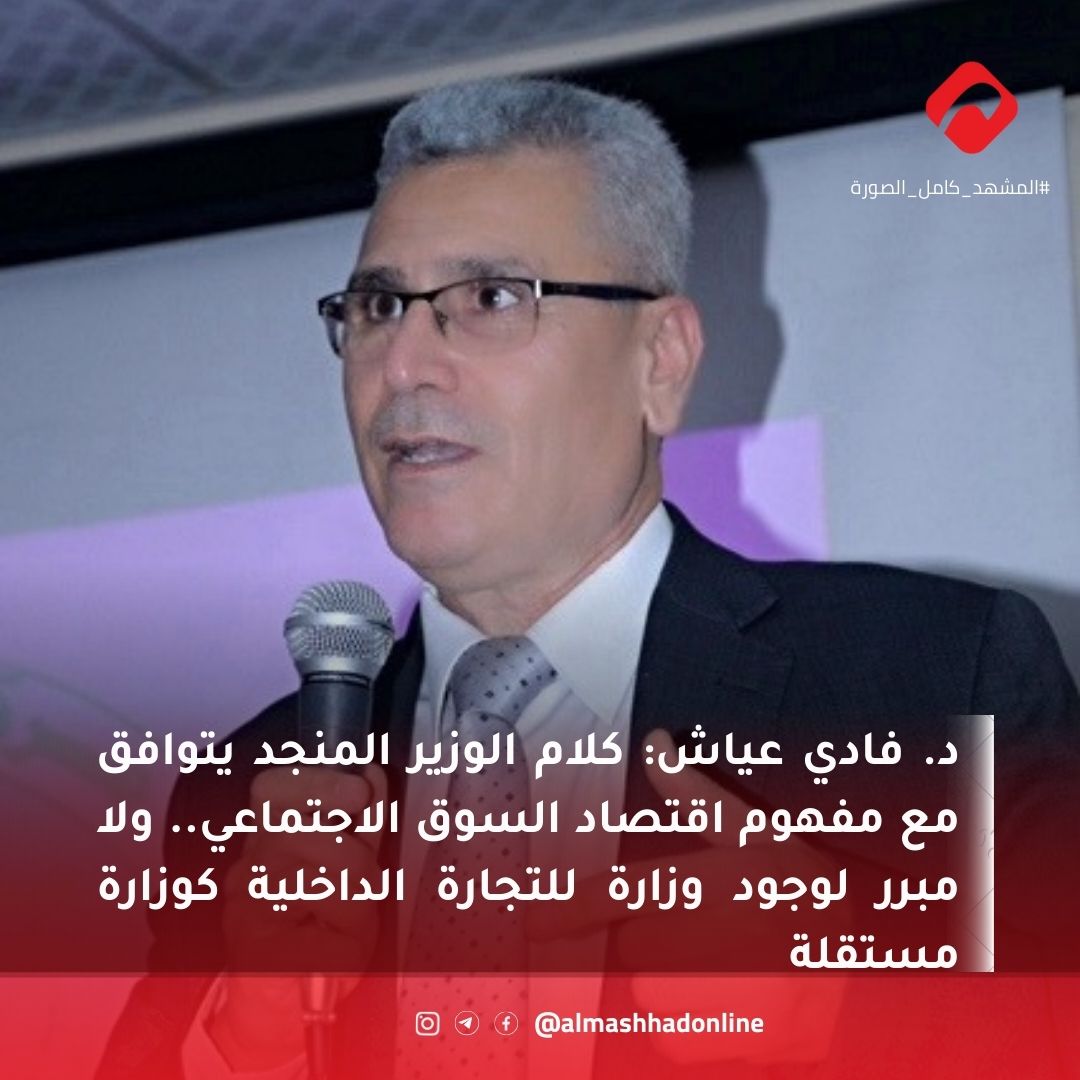The recent remarks by Minister of Internal Trade Louay al-Munajjid, in which he criticized the pricing mechanisms adopted by his ministry, continue to reverberate in commercial circles. His comments mark the first official government acknowledgment of concerns long voiced by economic actors: that the price bulletins were unrealistic, and that the administrative pricing system was pushing commercial entities into conflict and placing them under the constraints of rationing controls.
Many observers see the minister’s speech as a turning point in the realm of internal trade and its market mechanisms. Among them, economic researcher and consultant Dr. Fadi Ayyash views the minister’s remarks as a correction of a flawed path, signalling a broader shift that cannot be divorced from a reevaluation of the state’s role across various sectors. In an interview with al-Mashhad, Dr. Ayyash explained: “The term ‘coup’ is often viewed negatively, but it has a positive counterpart in the concept of a ‘revolution.’ In this case, we are witnessing a fundamental change, a reconsideration of the state’s role, not just of a single ministry.”
Lumbering Crimes: Syria’s Unchecked Loss of Trees
Dr. Ayyash continued: “The concept of the social market economy, which the government has officially embraced, suggests that the macro-level role of an overbearing ‘patriarchal state’ is outdated. Such an approach fails to foster the transformation needed in our economic and social structures, hindering progress, eroding gains, and obscuring our identity and vision. This comes with great risks, especially as adversaries could exploit transitional phases to undermine any efforts toward modernization and development.”
He argued that a shift toward a “sponsoring state” model—one that plans and manages resources efficiently—was necessary. “This shift calls for a comprehensive review of policies at all levels,” Dr. Ayyash emphasized.
When it comes to securing the diverse needs of society for goods and services, Dr. Ayyash stressed that this is a collective effort involving various components of the state, business sector, and local communities.
In conclusion, Dr. Ayyash noted that this transitional phase requires bold initiatives and proactive proposals. He believes this mindset aligns with the Prime Minister’s call for “thinking outside the box.”
This article was translated and edited by The Syrian Observer. The Syrian Observer has not verified the content of this story. Responsibility for the information and views set out in this article lies entirely with the author.



The Plight of Syrian Exiles in the Modern World